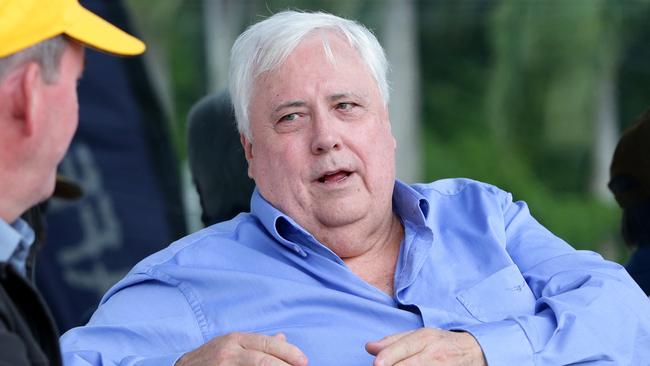Dual citizenship hits UAP candidates preferencing Coalition MPs
EXCLUSIVE: Clive Palmer’s party could help the Coalition hold on to 12 marginal seats as dual citizenship issues hit up to 20 UAP candidates.
EXCLUSIVE: More than 20 of Clive Palmer’s candidates could be ineligible to sit in parliament because they would probably fall foul of citizenship laws.
An analysis of United Australia Party candidates reveals at least three lower house candidates were born overseas while others have parents or grandparents born in another country.

MORE NEWS:
First look: Inside Sydney’s latest super pub
How social media is damaging NRL stars’ careers
Justine’s killer cop makes new admission
UAP strategists believe a preference deal with the Liberal Party could help the Coalition sandbag up to 12 marginal seats, raising questions about whether ineligible candidates will assist Coalition MPs get elected.
For the first time, candidates were required to submit paperwork to the Australian Electoral Commission relating to Section 44, after a constitutional crisis crippled the last parliament and led to 17 senators and MPs resigning over their citizenship.
Documents seen by The Sunday Telegraph reveal a dozen UAP candidates have refused to provide information about their citizenship or that of their parents or grandparents.
Mr Palmer’s media spokesman Andrew Crook said the party was “not concerned at all” as legal experts had assessed applications.
The eligibility of Mr Palmer’s candidate in the Sydney seat of Blaxland, Nadeem Ashraf, is one of those in doubt.
Mr Nadeem told the AEC Pakistan doesn’t accept dual citizens.
That is unlikely to satisfy the High Court, with Pakistan-born Greens senator Mehreen Faruqi forced to formally renounce her Pakistani citizenship.
Several other UAP candidates said their parents or grandparents were born overseas but didn’t provide any documents proving they had rid themselves of dual citizenship.


